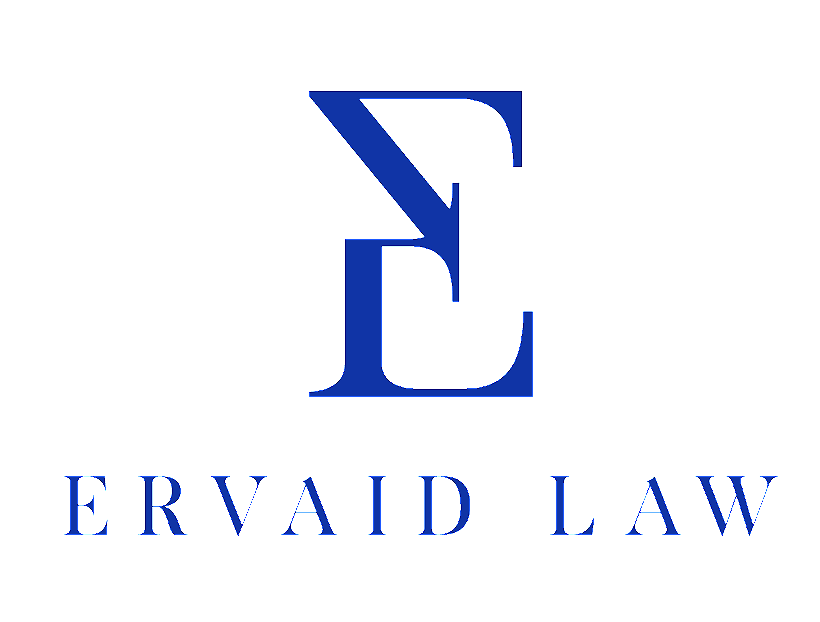Appeals
You may have grounds to appeal against a decision made in a criminal court.
If you instructed Ervaid Law during the criminal proceedings for which you wish to appeal a decision, we will ensure that you receive your written advice on appeal in a timely manner allowing you to make an informed decision on whether you wish to proceed with an appeal.
Ervaid Law will also provide “second opinion” advice when another lawyer has advised that there are no grounds of appeal. If our second opinion advice is positive, we can provide assistance in preparing grounds of appeal, including drafting arguments for permission to hear your appeal out of time.
Magistrates' Court Appeal
You can appeal to the crown court against your conviction in the magistrates’ court if you were found guilty at your trial. You can also appeal to the crown court against the sentence imposed in the magistrates’ court.
You must send your notice of appeal to the crown court within 21 days of the date you were sentenced. You may be able to obtain permission to appeal out of time.
The appeal heard in the crown court will be heard by a judge and magistrates. The prosecution lawyer will present the case against you and your case will be presented to the court.
If you win your appeal against your conviction, your conviction will be quashed and your sentence will no longer apply.
If you win your appeal against your sentence, your sentence will be reduced.
You may get some of your legal costs paid back if your appeal is successful.
If you lose your appeal, your original sentence or conviction might change as the crown court hearing your appeal can sentence you in anyway which the magistrates’ court could have sentenced you.
You might have to pay extra costs if you lose your appeal.
Crown Court Appeal
There is no automatic right to appeal your conviction and/or sentence in the crown court and leave must be granted in order to appeal to the Court of Appeal.
The Court of Appeal will only allow an appeal against conviction if they think that the conviction is unsafe. The Court of Appeal will only allow an appeal against sentence if they think the sentence imposed was manifestly excessive or wrong in principle.
The Court of Appeal will consider grounds (legal reasons) to appeal when you make your application for leave (permission) to appeal.
In relation to a conviction, an application for leave to appeal together with the grounds for appeal must be submitted within 28 days of the date of conviction.
In relation to a sentence, an application for leave to appeal together with the grounds for appeal must be submitted within 28 days of the date of sentence.
If the Single Judge feels that there is no merit in your proposed appeal then the Single Judge will reject it. In those circumstances you would still be able to proceed with your appeal to the Full Court.
Please note that there is a risk that by proceeding to the Full Court (without permission from the Single Judge) the time spent in prison awaiting the unsuccessful appeal might not be counted towards the sentence. This will usually only happen where the Court considers that an application for appeal was made wholly without merit.
If you are instructing Ervaid Law to advise and assist with a second opinion advice on appeal, we will consider all the material available. This will include:
- The case summary / opening note.
- Prosecution case papers (including digital evidence and unused material).
- Previous lawyer’s file.
- Previous lawyer’s written advice on appeal.
- The judge’s sentencing remarks.
- All agreed facts served during the trial.
- Court transcripts
Supreme Court Appeals
You may apply to the Supreme Court from a decision of the Court of Appeal following:
- An application to the Court of Appeal in relation to a prosecutor’s application for retrial after acquittal for a serious offence.
-
An appeal to the Court of Appeal in relation to:
- An appeal against ruling at a preparatory hearing.
- An appeal about conviction or sentence.
- A reference to the Court of Appeal in relation to a point of law.
You cannot appeal to the Supreme Court if the Court of Appeal has refused an application for permission to appeal to the Court of Appeal.
The application form must be served on the Registrar and every other party not later than:
- 14 days after the court gives reasons for its decision if that decision was on an Attorney General’s sentencing reference;
- 28 days after the court gives reasons for its decision in any other case.
The Defendant may at any time apply to the Court of Appeal for an extension of time within which to make an application for permission to appeal to the Supreme Court.
The Prosecutor may only apply for an extension of time in the case of an appeal under section 33(1B) of the Criminal Appeal Act 1968.
An application for permission to appeal to the Supreme Court or to refer a sentencing case must:
- Identify the point of law of general public importance that the appellant wants the court to certify is involved in the decision; and
-
Give reasons why:
- That point of law ought to be considered by the Supreme Court; and
- The court ought to give permission to appeal.
An application to refer a point of law must give reasons why that point ought to be considered by the Supreme Court.

